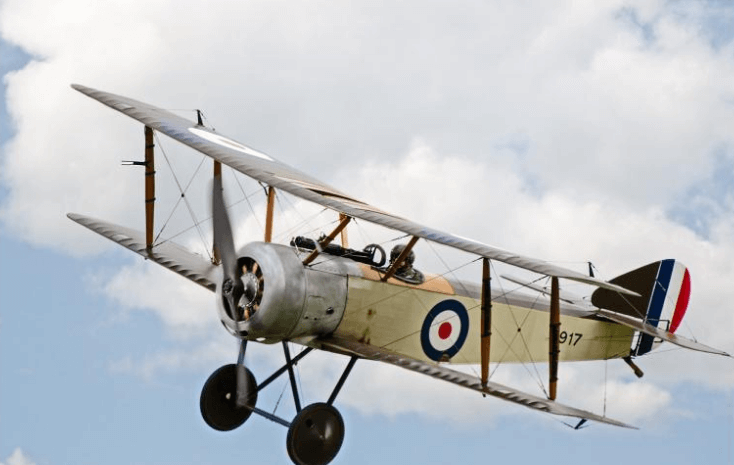“In the history of the world, World War I was fought between July 28, 1914, to November 11, 1918 AD in water and in the sky. Due to the unprecedented figures of the number of participating countries and the damage happened to it, it was named World War. It continued for 4 years 52 months. Nearly half of the world got into the grip of violence and it killed more than one Crore people and wound twice of this figure. When World War I happened, it was not known that the Second World War would be there but when World War II broke out, the First World War was named the First World War. After all the biggest thing is that, what were the reasons for the first world war, why the first World War happened, we will tell you that there were many reasons behind the existence of World War I, we will tell you all the reasons behind it that Why the first the World War happened”.

Reasons of First World War-:
-
First spark – murder of Archduke-1-:
On June 28, 1914, Archduke Ferdinand, the successor of the Austro-Hungarian Empire, was on a visit to Sarajevo in Bosnia with his wife. There he and his wife were murdered, after which the developments of World War I started. The visit of Archduke Ferdinand, the successor of the Austria-Hungarian Empire, was a very important visit to the empire. He was accompanied by his wife Sophie, the Duchess of Hohenburg. He was with the army for two days while his wife visited schools, orphanages, and churches in Sarajevo.
Archduke Ferdinand had visited the far-flung areas of the world. He had visited Australia, New Zealand, China, Japan, Canada and the United States during his World Travel in 1893.
In the year of 1913, he went to Britain. Archduke Ferdinand and his wife Sophie were with the Maharaja and Empress in Windsor Palace in the UK and they went to Sherwood Forest and Bolsover Castle. On June 28, 1914, Arch Duke Francis Ferdinand, the successor to the throne of Austria, was murdered in Bosnia (capital Cerazzano) and the charge of murder was made on Serbia. Due to the harsh ties between the two, Austria got an opportunity to take revenge from Serbia. In view of the situation, Austria forced Serbia to accept certain demands (ten point demand letter), but Serbia rejected the inappropriate demands of this demand letter. Many countries joined the war and ultimately the war took the world over.
-
Rage of nationality-:
The basic reason for the war was the spirit of nationalism in many states of Europe. After some time this feeling took the form of a raging form. Under this, the nations started their special efforts to advance their progress.
-
Policy of Bismarck-:
By defeating France, Bismarck established Germany’s authority over Alsace and Lorraine the states of France. France wanted to defend its defeat from Germany. He had a strong desire to regain his lost territories. With the purpose of making France helpless, Bismarck has made a treaty with Russia, Austria and Italy. As a result, his position became very strong and France was afraid of invasion of Germany all the time.
-
Treaty between Russia and France-:
The end of the Germany-Russia Treaty concluded by Bismarck in 1900 AD, which was required to be reclaimed, but after the fall of Bismarck, German-Emperor William II thought that the repeat of that treaty is not as profitable to Germany. From this, Russia understood that Germany was more interested than Austria. Russia was left alone and its focus was towards France. France was also in the search of a friend in Europe. Therefore, by being bound by the situation, he made a treaty with France in 1893, which end the loneliness of France’s.
-
Treaty between France and England-:
For a long time, In France and England, a great bitterness arose in relation to the colonial subjects. But at the beginning of the twentieth century, both were frightened by the growing power of Germany by which they thought that we should come together. In 1904 AD, there was a settlement happened between the two, which is known as the Anglo-French treaty. As a result of France’s special effort in 1907, Russia also joined the agreement. Thus, in 1907, became a group of Germany, Russia and France against Germany. Eventually Europe split into two opposing groups.
-
Ambition of Kaiser William II-:
German emperor William II wanted to make Germany the world’s best power. His heartfelt desire was that Germany should not only be a European power but also take the form of international power. Hence, he made every effort to achieve this objective. But he could not achieve special success in this direction. Because when Germany came into this region, England and France had established their vast empires at that time. But Germany still took action on this. Due to this imperialist spirit of Germany many times the possibility of European war arose. He started spending most of the money in Germany’s military. He made every effort to implement a large fleet plan and implement it. He deepened the Keel Canal, from which large sea vessels could be accommodated in that canal. Germany also started building war-ships.
Many times England prayed to the German Emperor not to prepare war-ships, but it did not have any effect on Germany, and he continued to work. Because of this, protests started increasing in England and Germany day by day, and in this way, with the ambition of German Emperor, England had to contend with Russia and France.
-
Eastern policy of Germany-:
When Germany got frustrated all over the establishment of his empire, his attention was drawn to the East. He imitated this route with the intention of expanding his empire. Germany made friendship with Turkey and started expanding its influence there. He opposed the policy of Austria in the Balkan Peninsula and opposed Russia’s policy. Germany took permission from the Sultan of Turkey to build the Berlin-Baghdad Railway. This railway created fear for England’s Indian empire. Germany’s friendship with Austria was compulsory for the construction of this railway line because this railway line went through the territories of Austria and its influence. This is the reason, Germany always wanted to befriend of Austria. Other nations of Europe protested against the construction of this railway line, for this purpose, Germany wanted to expand the influence of Austria into the Balkan region.

Events of the First World War-:
Prior to the beginning of the Great War of 1914, the great nations of Europe had split into two opposing groups. On one side there were states of Germany, Austria, and Italy, and on the other side were states of France, Russia and England.
-
Russia’s involvement in the war-:
Russia has always taken the side of Serbia. Russia’s heartfelt desire was that as in the past, the problem of the Balkan Peninsula was settled in the conference of all European states, just like that at this time we will resolve this question in the conference. But when Russia observed that Austria is determined to end the power of Serbia, Russia ordered the Russian army for military preparations. Russia sent their army to the Balkan Peninsula for the help of Serbia’s. In this way, Russia took military action against Austria.
-
Involvement of Germany-:
After getting Germany’s support, Austria took a strict policy against Serbia. Germany’s heartfelt desire was that the war between the Austrian and Serbian Serbs remain to the terrestrial area, but when Germany saw that the Russian chief ordered his army to be ready for the the war, Germany said Serbia and Russia would remove their armies, but Russia did not pay any attention to this prayer of Germany. At this time there was a treaty between Germany and Austria. After all these, Russia proffered to help Austria. Germany announces war against Russia. Thus, the war took place between Germany and Russia.
-
Involvement of France-:
On the other hand, France and Russia were friends. Russia had full hope that France will help them against Germany. When Germany announced a war against Russia, France declared war on Germany.
-
Involvement of England-:
So far, England was trying to establish peace in Europe by mutual agreement, but at the same time, Germany took control over Luxembourg and asked for a way to Belgium to invade against France for its army, but Germany did not paid attention And ordered its armies to enter in Belgium. As soon as this incident, on 4 August 1914, England declared war against Germany.
-
Involvement of other countries-:
After some time the following states took active part in the war-
- 1. Japan announced the war against Germany.
- 2. In November 1914, turkey jumped into the war for helping to Germany and Austria.
- 3. For some time Italy did not join the war, although Italy was a member of the Trilateral group. Italy be apart by saying that Germany and Austria were not fighting for security. Later in May 1914, Italy entered in the war against this party as assistant to France, Russia and England. The main reason for this was that Italy wanted to take backs some of its territory from Austria and in April 1915, Italy made a treaty of London with it’s the Allies.
- 4. In the year of 1917 United States of America joined the war against Austria and Germany. In the middle of the war, the United States requested to Germany to suspend the use of war-ships, but Germany did not pay attention to the request of America. This forced the United States to join the war.
- 5. In 1915 Bulgaria also became a supporter of Germany and Austria and entered in the war. 6. Montenegro announced the war against Austria by taking the side of Serbia. 7. After entering the United States, a few months later many states of Central and South America and Shyam, Libya and China were also involved in the war from the side of their respective Allies. By joining all these nations, almost all the world went towards the Allies and the war actually took the form of a world war.
Result of first World War-:
-
Widespread war-:
This war was very wide. This war happened in Europe and Asia continents. In this war, 30 states participated and 87 per cent of the world participants participated in it directly or indirectly. Only 14 countries of this world did not participate in this war. In this, about 61 billion individuals participated in the direct form. Of these 85 million people were killed. Nearly 20 million people were injured, captured or lost.
-
Loss of money:
In this war too much money was pended by every country and all the countries of Europe had to face the financial crisis in particular. It cost about 10 billion rupees. By March 1915, England’s daily expenditure was moderately 1.5 million pounds, 40 million in 1915-16, 5.5 million in 1916-17, and 65 million pounds in 1917-18, and end of the war its national debt was 7080 million had increased to 74350 million pounds. France’s national debt increased from 341880 million francs to 1974720 million francs and Germany’s 500,000 million mark to 1306000 million mark. It is clear from this that there was excessive expenditure happened in this war.
-
Political results:
The political consequences of this war were very important. After this war, the rule of the dynasties came to an end and the era of establishing of a Republic country began in place of rajshahi. The emperors of Germany, Russia, Turkey, Austria, Huganri, Bulgaria, etc. had to relinquish their position and the right to public authority was established. Ancient dynasties had been ended and Public rights have been established on Europe. The new 11 republic states were established in Europe, whose names are as follows: 1. German, 2. Austria, 3. Poland, 4. Russia, 5. Czechoslovakia, 6. Lithuania, 7. Latvia, 8. Antonia, 9 Finland, 10. Ukraineand 11. Turkey. Even in ancient countries where the monarchy was as it was, the development of democracy started to grow rapidly. England, Spain, Greece, Romania, etc. came under this. Thus this is clear that this war gave opportunity to the establishment of democracy and ended the dynasties.
-
Social result:
There have also been significant results in the social sectors of this war. The demands of people in the war continued to increase, due to which many people who were busy in other tasks had to leave their work and force them to take military services. Women had to take place of men to fulfill their work. In this way, they got rid of household life and started working in factories. They came to know their importance and the rise their self-confidence. After the end of the war, women also demanded their rights as human beings and almost every state accepted their many demands.
-
Economic results-:
After the war, the influence of communist ideology increased widely, and now people got into the spirit that the nationalization of the industries should be established and the state should have all the rights and control of the industries. In this direction, although no more success has been achieved, but in every country, different types of interventions have been done by the states. Day by day the importance of the laborers working in factories started increasing and they started to keep their demands in front of the state. Thus, after this war, the workers started to organize themselves. Almost all the governments of the countries have made different types of laws in fabour of labours.
-
The victory of nationality-:
After this war, the spirit of nationalism was won and its development started. At the peace conference in Paris, all the nations attempted to reorganize Europe after assuming the principle of self-determination as prescribed by President Wilson and accordingly, eight new states were created. Which are Czechoslovakia, Yugoslavia, Hungary, Poland, Lithuania, Anthonyia and Finland.
-
Expansion of military power-:
Germany’s military power was controlled by the Peace Conference, but the victorious states did not take any step towards controlling their military power, but they only increased their military power. When Nazism of Germany and fascism of Italy were established, they tried every possible way to upgrade their countries. They expanded their more military power.
-
Establishment of the League of Nations
After this war, the League of Nations was established with the aim of establishing peace. This major step was taken, but it did not achieve special success in the establishment of world peace. It could not control the ambitions of the nations, which led to the increase in intolerance in the countries.
Thus, there were very significant consequences of this World War, which greatly influenced future history.
